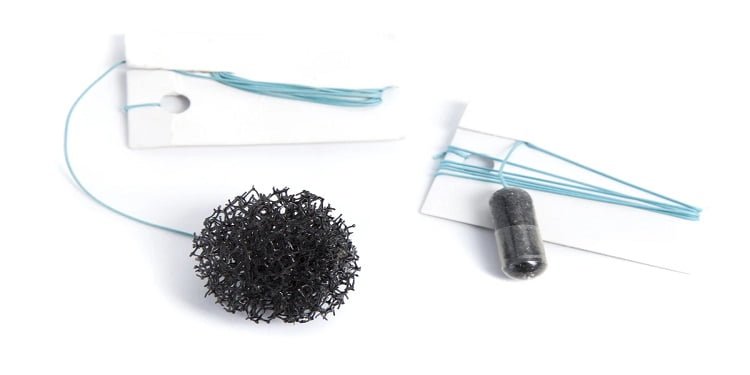A simple test that involves a patient swallowing a dissolvable pill on a string should be made more available in order to prevent cancer deaths, a charity has warned. The capsule sponge test, previously known as cytosponge, collects cells from the oesophagus to detect abnormalities that could increase the risk of oesophageal cancer.
Oesophageal cancer affects around 9,300 Britons a year, according to Cancer Research UK. Unfortunately, symptoms often surface at a later stage and are often mistaken for everyday ailments, such as indigestion. As a result, the five-year survival rate of oesophageal cancer is less than 20 percent. However, if detected early at stage one, the survival rate jumps to 55 percent, underscoring the importance of taking steps to prevent it.
Mimi McCord, founder and chairman of the charity Heartburn Cancer UK, experienced the devastating effects of oesophageal cancer firsthand. After her husband Mike passed away from the disease in 2002, she set up the charity to raise awareness and improve early diagnosis. McCord is now pushing to make the capsule sponge test more widely available in a bid to get patients diagnosed earlier and improve their odds of survival.
McCord emphasizes that oesophageal cancer can hide in plain sight, often masquerading as harmless heartburn. She warns that while individuals may treat the symptoms, the underlying cause could be silently progressing and potentially fatal. By increasing access to the capsule sponge test, more individuals can be screened for abnormalities in the oesophagus, allowing for early detection and intervention.
Studies have shown that the capsule sponge test can more readily detect Barrett’s oesophagus, a condition that significantly increases the risk of developing oesophageal cancer. Currently, the test is offered only to higher-risk patients as an alternative to endoscopy in NHS pilot schemes. Endoscopy, a procedure that involves inserting a camera down the throat, is the main diagnostic method for oesophageal cancer.
However, the innovative capsule sponge test shows promise in providing a less invasive and more accessible option for early detection. If the ongoing trials yield positive results, there is potential for the test to be rolled out further, saving more lives in the process.
Ms. McCord is frustrated with the slow progress in making the test widely available. She emphasizes, “We have a test. We know it works. People are dying while we wait to make it widely available.” Her campaign aims to raise awareness about the importance of early detection and to advocate for increased access to the capsule sponge test.
By making the capsule sponge test more readily available, healthcare providers can identify individuals at higher risk of developing oesophageal cancer and intervene at an earlier stage. This proactive approach can significantly improve the chances of survival and reduce the number of deaths caused by this silent killer.
It is crucial for individuals to be aware that not all heartburn is harmless. If persistent heartburn occurs, it is important to consult a healthcare professional and discuss the possibility of undergoing the capsule sponge test. Early detection and intervention can make a significant difference in the outcome of oesophageal cancer, potentially saving lives.
As we continue to strive for advancements in cancer prevention and early detection, it is imperative that we make innovative tests like the capsule sponge test widely available. By doing so, we can take a significant step towards reducing the burden of oesophageal cancer and improving the overall health and well-being of individuals at risk.


























